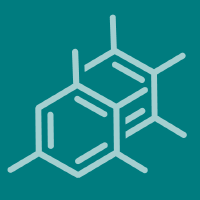Topic Menu
► Topic MenuTopic Editors



ACC Deaminase Producing Microorganisms in Stress Agriculture: From Hypothesis to Omics
Topic Information
Dear Colleagues,
Microbial 1-aminocyclopropane-1-carboxylic acid (ACC) deaminase (EC 3.5.99.7) is an intracellular enzyme that is known to be associated with ethylene signaling in plants. Ethylene, despite being an important gaseous phytohormone in plants, is overproduced as a response to environmental stresses. Fortunately, certain beneficial microorganisms, especially bacteria and fungi, assist plants in regulating ethylene homeostasis in plants. They possess the ACC deaminase enzyme that cleaves ACC, the immediate precursor of ethylene into α-ketobutyrate and ammonia. To perform this action, they generally have to establish a close association with plants either as endophytes or reside around the rhizosphere or rhizoplane regions. Studies on plant–microbe interaction under various biotic and abiotic stresses have opened different arenas regarding the role of microbial ACC deaminase as part of synergistic interactions. This Topic will particularly focus on ACC-deaminase-producing microorganisms, their role in stress alleviation, application in agriculture, molecular studies on mechanistic insights, as well as genetic engineering and omics approaches.
Dr. Krishnendu Pramanik
Prof. Dr. Yinglong Chen
Prof. Dr. Narayan Chandra Mandal
Dr. Sandipan Banerjee
Topic Editors
Keywords
- microbes
- stress
- agriculture
- ACC deaminase
- ethylene
Participating Journals
| Journal Name | Impact Factor | CiteScore | Launched Year | First Decision (median) | APC |
|---|---|---|---|---|---|

Agronomy
|
3.4 | 6.7 | 2011 | 17.2 Days | CHF 2600 |

International Journal of Molecular Sciences
|
4.9 | 9.0 | 2000 | 20.5 Days | CHF 2900 |

Microorganisms
|
4.2 | 7.7 | 2013 | 15.2 Days | CHF 2700 |

Molecules
|
4.6 | 8.6 | 1996 | 16.1 Days | CHF 2700 |

Plants
|
4.1 | 7.6 | 2012 | 17.7 Days | CHF 2700 |

Preprints.org is a multidisciplinary platform offering a preprint service designed to facilitate the early sharing of your research. It supports and empowers your research journey from the very beginning.
MDPI Topics is collaborating with Preprints.org and has established a direct connection between MDPI journals and the platform. Authors are encouraged to take advantage of this opportunity by posting their preprints at Preprints.org prior to publication:
- Share your research immediately: disseminate your ideas prior to publication and establish priority for your work.
- Safeguard your intellectual contribution: Protect your ideas with a time-stamped preprint that serves as proof of your research timeline.
- Boost visibility and impact: Increase the reach and influence of your research by making it accessible to a global audience.
- Gain early feedback: Receive valuable input and insights from peers before submitting to a journal.
- Ensure broad indexing: Web of Science (Preprint Citation Index), Google Scholar, Crossref, SHARE, PrePubMed, Scilit and Europe PMC.


